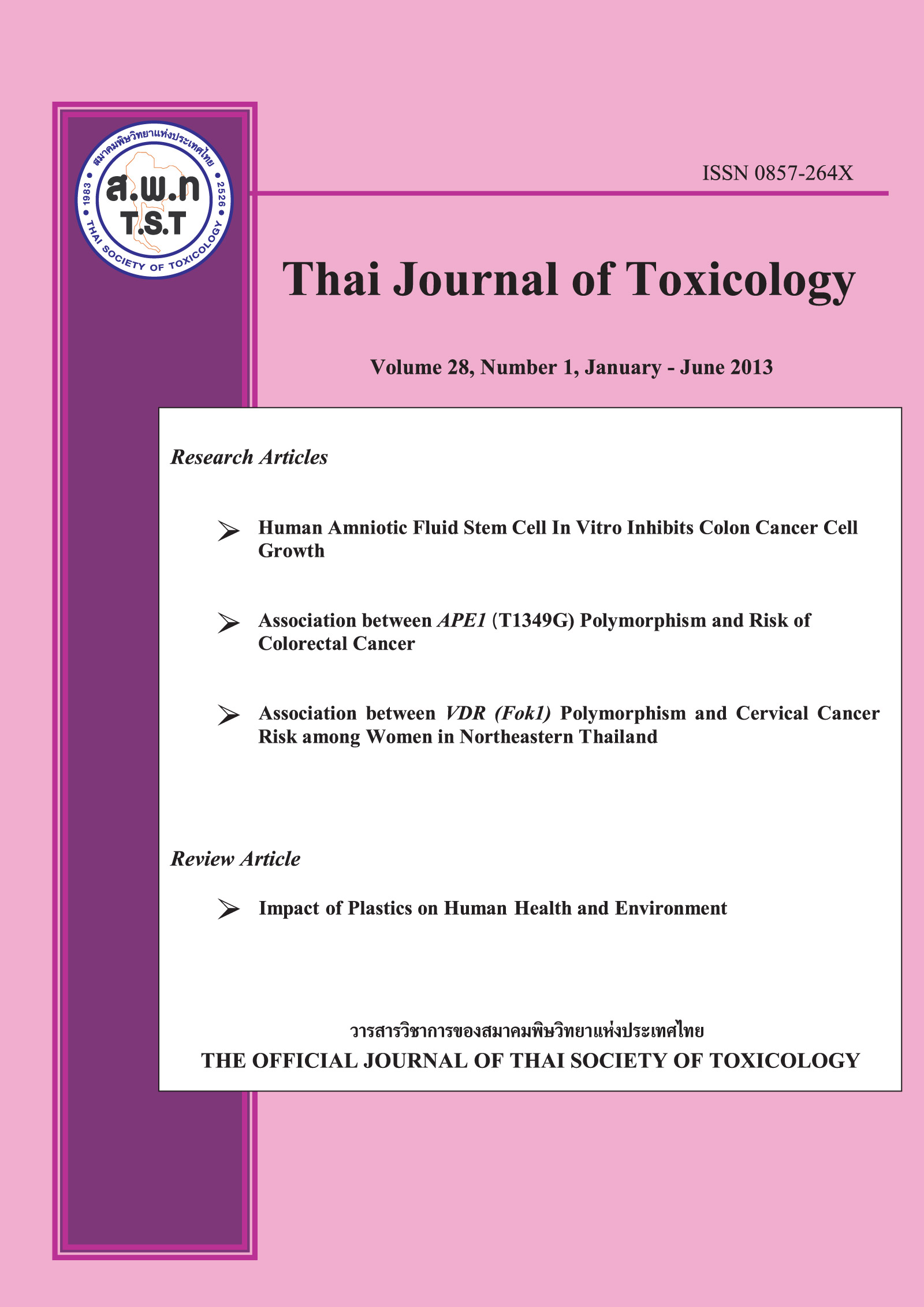Association between APE1 (T1349G) Polymorphism and Risk of Colorectal Cancer
Main Article Content
Abstract
Colorectal cancer (CRC) is a serious malignant disease that has high incidence and causes a great economic lost in Thailand every year. Several risk factors are involved in CRC development such as behavior of eating grilled-meat that contained polycyclic amines, food with high fat and low fiber, red meat, tobacco smoking, alcohol drinking, chronic infection and genetics background. To date, it has reported that apurinic/apyrimidinic endonuclease 1 gene (APE1) which encodes for enzymes used in the base excision repair (BER) for repairing of DNA damaged by oxidation and alkylation reactions, has a single nucleotide polymorphism. This polymorphism occurs at nucleotide position 1349 in exon 5 by thymine base (T) to guanine base (G) transversion (T1349G) and provided 3 genotypes of APE1; TT (wild type), TG (heterozygous type) and GG (mutant type) genotype. The altered enzyme endonuclease resulting from the genetic changes decreased its interaction with other BER proteins, which was later found that APE1 (T1349G) polymorphism is associated with increased risk of several cancers including the CRC. The aim of present study was to investigate the association between APE1 (T1349G) polymorphism and CRC risk in Thai population. This case-control study was conducted for APE1 (T1349G) polymorphism analysis in control and patients with CRC group (120 samples for each group) (age matched) by using real-time polymerase chain reaction (RT-PCR) with TaqMan probe technique. The frequencies of TT, TG and GG genotype in the control group were 30 persons (25.0%), 64 persons (53.3%) and 26 persons (21.7%), while in the CRC group were 21 patients (17.5%), 59 patients (49.2%) and 40 patients (33.3%), respectively. We also found that individuals with GG genotype had a 2.20-fold increased risk for CRC development as compared with those with TT genotype [Odds Ratio = 2.20, 95% Confidence Interval = 1.04 - 4.63 and P < 0.05)]. In addition, the association between CRC development and other risk factors such as history of cancer in family, history of inflammatory bowel, lack of regular physical activity, low fruit and vegetable intake, low fiber and high-fat diet, obesity, and alcohol and tobacco consumption was observed. The results from this study suggest that APE1 (T1349G) polymorphism is associated with CRC risk in Thai population and it may be a useful genetic risk marker for screening of CRC high risk people in Thailand in the future.


